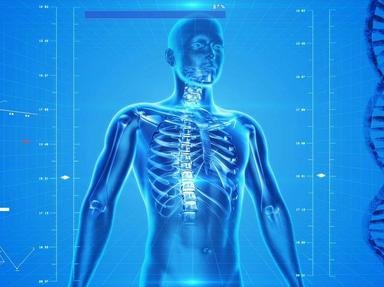Quiz Answer Key and Fun Facts
1. The heart is the size of a fist and consists of four chambers, the two atria and the two ventricles. Which chamber pumps blood throughout the body?
2. The head houses the brain and is made up of lobes. Which lobe does not pertain to the brain?
3. Which body organ has beta cells which secrete insulin?
4. When we extend our arms, which muscles contract?
5. A metatarsal fracture affects which part of the body?
6. The foods and drinks that we consume travel down a narrow, long, muscular tube in our bodies. What is the name of the tube?
7. Skin is the largest external organ. Its function is to protect the underlying tissues and organs. What is the outermost layer of the skin called?
8. The electrical impulses of the heart are fired out from the sinoatrial node which is situated in which chamber?
9. Pulmonary edema is the state of having fluid in which organs?
10. The endocrine glands are ductless and secrete hormones. Which one of these is a hormone?
Source: Author
tritran5555
This quiz was reviewed by FunTrivia editor
rossian before going online.
Any errors found in FunTrivia content are routinely corrected through our feedback system.


